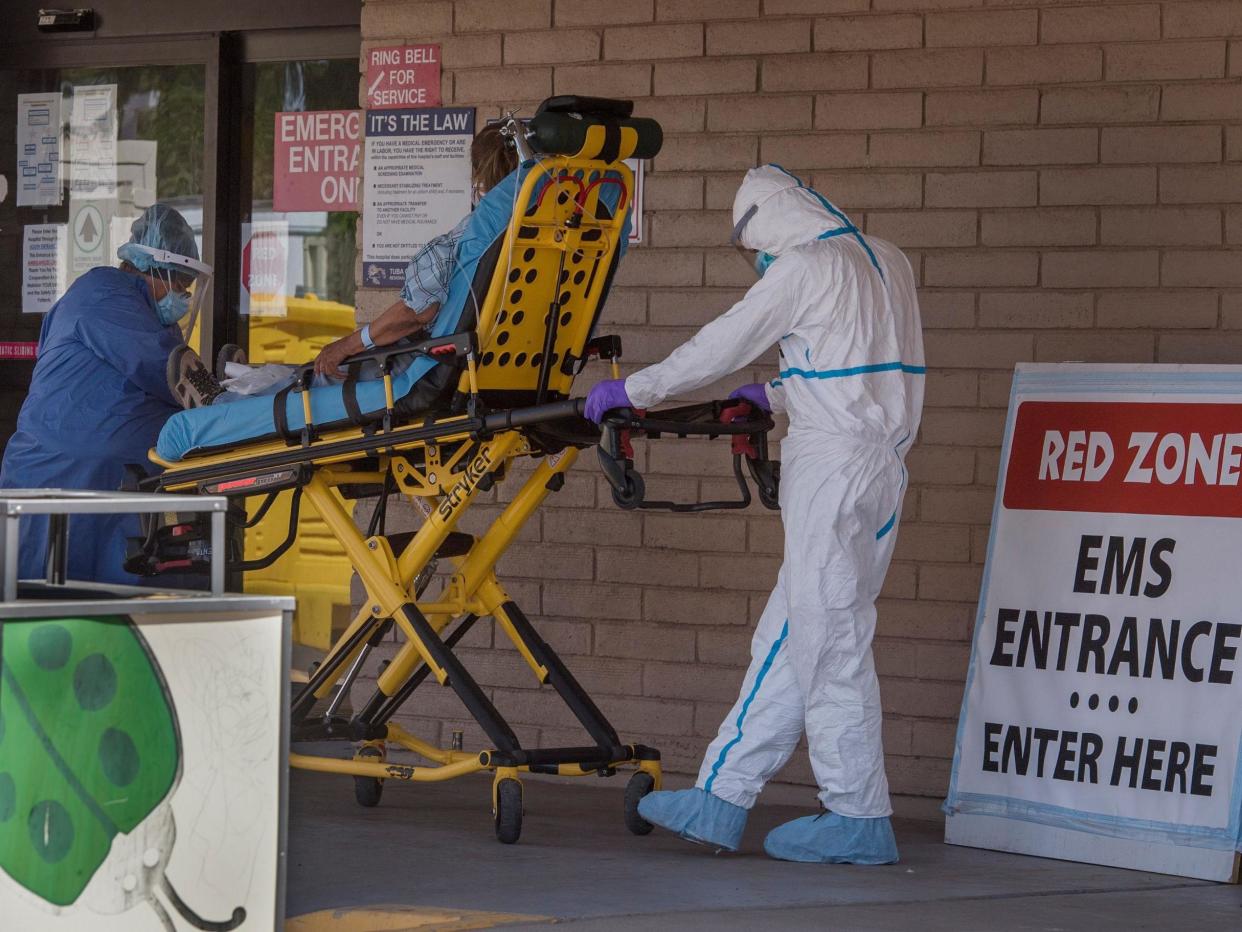Native American tribes blocked from receiving data on spread of coronavirus that is freely given to states

Native American tribes have been refused access to coronavirus data that has been made readily available to states by the Centres for Disease Control and Prevention (CDC).
Organisations representing Native American tribes have had their requests to see data about how the virus is spreading around their lands turned down by the CDC, according to Politico.
Michigan and Massachusetts authorities have also turned down requests from tribal epidemiologists for data and have refused to make agreements on contact tracing.
The states have reportedly cited privacy concerns as the reason for not handing over data and have questioned the tribes’ legal standing as sovereign groups, according to eight tribal leaders who spoke to Politico.
Native Americans have been badly affected by the virus, and in May, Doctors Without Borders sent a team of medical staff to help the Navajo Nation as their reservation had surpassed New York for per capita coronavirus cases to become the worst hit in the country.
Tribes in New Mexico have also been badly affected and Native Americans in the state account for 60 per cent of Covid-19 cases, but only make up 8.8 per cent of the population.
Democratic congressman Danny Heck, who has worked with Native American tribes, said that helping populations control the virus makes the whole area safer.
“Because of the nature of the virus, which respects no physical boundaries, the ability to get the resources to where it’s being disproportionately felt is a way to protect the broader population as well,” he said.
The 12 tribal epidemiology centres, which are considered public health authorities alongside the CDC, have been repeatedly denied information and been informed that the data is not for the public.
Abigail Echo-Hawk, the director of the Urban Indian Health Institute, told Politico: “We struggle every single day to get the states, the counties and agencies like the CDC to actually comply with that,” she said. “But they don’t recognise us.”
The institute is trying to access the CDC’s National Electronic Disease Surveillance System, as well as other data, to try and work out what underlying health conditions or factors could be causing the Native American community to be so badly affected.
However, Ms Echo-Hawk told Politico that they are not being taken seriously, and added that during a call in May, CDC officials attempted to explain to her and her colleagues what epidemiology is, despite the institute being the main epidemiology centre for Native Americans in urban areas.
“It’s part of the systems of inequity in this country that I have to push, and we don’t always have the political power to push these large agencies to give us what we need,” Ms Echo-Hawk said.
“This is public health epidemiology — it’s not research. The data is meant to understand the health of the community and address pressing public health concerns.”
The Independent has contacted the CDC for comment.
Read more
Hard-hit tribe takes strict steps as coronavirus surges in Arizona

